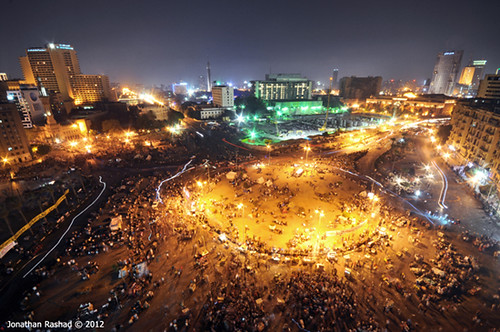
CAIRO – “Bashar should abandon power and retire safely in Egypt. The general-prosecutor is murder-friendly,” a friend, referring to Syrian President Bashar al-Assad, told me as we watched former Egyptian President Hosni Mubarak’s trial in the Police Academy’s criminal court. Although Mubarak and his interior (security) minister, Habib al-Adly, were handed life sentences at the conclusion of their trials, the generals who ran Egypt’s apparatus of repression as deputy interior ministers were acquitted.
Hasan Abd al-Rahman, head of the notorious, Stasi-like State Security Investigations (SSI); Ahmad Ramzi, head of the Central Security Forces (CSF); Adly Fayyid, the head of Public Security; Ismail al-Shaer, who led the Cairo Security Directorate (CSD); Osama Youssef, the head of the Giza Security Directorate; and Omar Faramawy, who oversaw of the 6th of October Security Directorate, were all cleared of any wrongdoing. Lawyers for Mubarak and al-Adly will appeal their life-sentences, and many Egyptians believe that they will receive lighter sentences.




